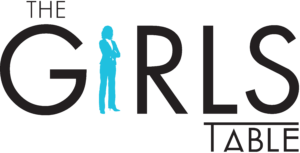On December 9, the world unites to observe International Anti-Corruption Day. This day serves as a vital reminder of the detrimental effects of corruption and a call to action for individuals, communities, and nations to join hands in combating this pervasive problem.
In Zimbabwe, a nation grappling with significant challenges, young women confront a complex and interwoven set of obstacles, such as ingrained gender inequality and the far-reaching effects of corruption. These issues intertwine, creating a double burden that can stifle their progress and limit their opportunities.
Corruption is a deeply embedded issue within Zimbabwe, affecting individuals across all levels of society. From the highest echelons of government to everyday interactions with law enforcement and public services, its presence casts a long shadow. This pervasive corruption can erode trust in institutions, hinder development, and disproportionately impact vulnerable communities.
According to Transparency International’s Corruption Perceptions Index, Zimbabwe is 157 out of 180 countries. This position paints a stark picture of a nation grappling with a pervasive problem. This widespread corruption, like a malignant cancer, erodes the very fabric of society, corroding public trust, diverting resources away from essential services, and perpetuating a vicious cycle of poverty and inequality.
In Zimbabwe, young women face a unique challenge: navigating a landscape riddled with both corruption and entrenched with gender inequality. These two forces intertwine, creating a formidable barrier to their aspirations and hindering their ability to reach their full potential.
“Rampant corruption often manifests in unfair bureaucratic processes and discriminatory practices, making it difficult for young women to access essential services like healthcare, legal aid, and secure documentation. This disproportionately impacts their well-being and limits their opportunities for advancement,” said Busisiwe Moyo.
She said bribery and favouritism within education systems and the workforce could create an uneven playing field, disadvantaging young women and hindering their access to quality education and fair employment opportunities.
Zimbabwe boasts high enrolment rates in its education system, yet a dark shadow of corruption hangs over these figures. Bribery and unethical practices have infiltrated the very institutions meant to nurture young minds, disproportionately impacting girls and jeopardizing their right to education and future success.
Young girls in Zimbabwe face an insidious double burden: the expectation of academic excellence and the pressure to succumb to corrupt practices to secure their place in the classroom. Demands for bribes, often in the form of money or sexual favours, become hurdles they must overcome to gain admission, obtain exam results, or receive scholarships.
These acts of exploitation not only violate their fundamental rights but also create an environment of fear and intimidation, hindering their ability to learn and thrive.
Natasha Mathema said while Zimbabwe boasts a relatively high national healthcare access rate, the reality for young women paints a starkly different picture.
“Corruption within the healthcare system acts as a silent predator, stealing their right to health and amplifying existing gender inequalities.
“Limited resources allocated to healthcare are often siphoned away through embezzlement and bribery, leaving clinics and hospitals understaffed and lacking essential supplies. This has a disproportionate impact on young women, who often face unique reproductive health challenges,” said Mathema.
It is clear from Mathema’s observation that in Zimbabwe’s complex landscape, the intertwined nature of corruption and gender inequality casts a long shadow over the lives of young women, particularly in the realm of employment.
A stagnant economy and high unemployment rates create a harsh reality where limited job opportunities become even scarcer for young women.
The competition for formal sector jobs often takes a sinister turn, with demands for sexual favours or bribes emerging as a corrupt and exploitative barrier to entry. This insidious practice disproportionately impacts young women, who are forced to choose between compromising their integrity and facing the harsh reality of prolonged unemployment.
The door to meaningful employment remains firmly shut for those who refuse to succumb to such unethical demands. This entrenched corruption perpetuates a vicious cycle of dependence and vulnerability, making it highly challenging for young women to break free from the shackles of deeply ingrained gender biases.
According to a lawyer who refused to be named for professional reasons, the pervasive issue of corruption extends its reach into the very heart of the justice system, creating an environment where young women seeking justice and protection from gender-based violence face an uphill battle.
“Reports and surveys paint a disturbing picture, revealing that corruption within the police force often leads to the mishandling of sexual assault cases.
“This system-wide failure not only denies survivors their right to justice but also creates a culture of impunity, emboldening perpetrators and discouraging future survivors from coming forward.
“When survivors encounter corruption within the justice system, it erodes their trust in the institutions meant to protect them. This can lead to helplessness, despair, and re-traumatization,” said the lawyer.
It is important to note that in Zimbabwe’s pursuit of a brighter future, a critical battle rages against two intertwined adversaries: corruption and gender inequality. A multi-faceted approach is vital to achieve lasting progress and empower young women, striking at the root of these systemic challenges.
Civil society organizations in Zimbabwe also play a crucial role in documenting corruption, providing legal aid to victims, and holding authorities accountable. Their work ensures justice and empowers individuals to challenge the status quo.
There is no doubt that combating the deeply entrenched issues of corruption and gender inequality in Zimbabwe requires a concerted effort beyond national borders. International cooperation and the unwavering support of the global community are vital catalysts for positive change.
From the above information, it is clear that as the country marks International Anti-Corruption Day, the plight of young women in Zimbabwe stands as a stark reminder of the devastating consequences of two intertwined evils: corruption and gender inequality. These young women face a double burden, their aspirations, and opportunities stifled by both systemic corruption and entrenched gender biases.
Their access to education, healthcare, and employment is hampered by bribery, extortion, and discriminatory practices. Their voices are often silenced within a system rigged against them, denying them the chance to participate meaningfully in shaping their destinies.
But amidst this bleak reality, there are glimmers of hope. Young women are rising, refusing to be silenced or marginalized. Civil society organizations tirelessly work to empower them, provide support, and amplify their voices. International cooperation is offering vital resources and expertise to bolster anti-corruption efforts and promote gender equality.
By Simo Maphalala

